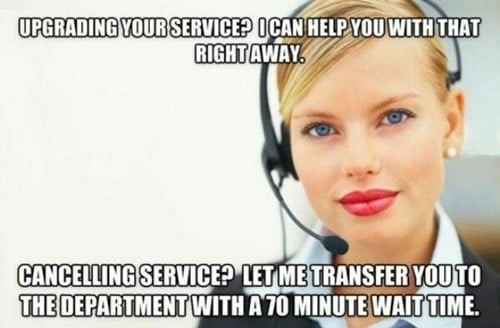
UPDATE 1:
I have contacted said telco about this document and received the following reply:
[Telco] is in the process of consulting on a number of changes with our customer care team, as we look to complete the wider organisational change programme we announced in November last year.
We will be implementing a number of initiatives aimed at achieving faster call answering times and a quicker first-call resolution for our customers. These include; further investment in removing systems and process duplication (particularly for fixed line services); continuing to improve self-service functionality with the [telco] app and on our online site; creating new roles [New Zealand location]; providing a better work environment through a more stable work roster; and leveraging our existing capability at our [offshore] service centre to complete simple transactional tasks (top-ups, account balance enquiries, etc).
This is a draft proposal at this stage, and is subject consultation with our teams. Our top priority is to support our people through this change.
I have to say a public thanks for getting this response so quickly and quite frankly, open.
The document I've seen is just one piece of the puzzle. It suggests changes in the contact centre in terms of headcount (mostly going down), redistribution of transaction types and changes in roster scheduling.
The document put emphasis on increased use of data via high speed networks (no distinction between mobile or fixed line). It also mentions that (gasp) customers expect to get more data for the same spend.
This leads, the author says, to revenue declining over a certain period of time with at last revenue falling short of expectations. The document outlines changes to reduce cost of serving customers contacting the company.
There are some good suggestions there. For example for fixed it suggests current call handling around 20 minutes average and a "expertise limit" at 1.5 - 2 hours, after which calls would be escalated. CSRs would "own" the call. CSRs should escalate calls if customer has repeat unsolved calls (good luck with that, seeing many of the comments I've heard is that customers calling back hear the "I don't have a record of you calling before").
The 55-page document does mention that changes in the customer services team will allow for better roster scheduling, with team leaders available at times similar to their team. (What do they have now? Teams with no leaders at some times?)
Why did I start this topic then? Because, even though companies have a duty to operate in a way to maximise return of investment to its shareholders, it's interesting that the emphasis on saving money seems much stronger than in actually improving customers care. The first is the driver for the change, the other is a consequence.
I won't post the document because it contains names and specific numbers that I don't think should be disclosed.
UPDATE 2:
The document proposes an extreme reduction of customer services position, hence my original comment that it would save them money but at what impact to customers trying to reach solutions to their problems?
We already know Vodafone customers experience an extremely high call hold time as it is now.
Some of the ideas in the document make sense, and we all know that throwing more people into a problem doesn't help solve it faster, but I am not sure this applies to what seems to be a queueing problem with bad support from their systems. And this is not discussed in the document.
I will not post exact numbers and where because that would probably cause too much distress in certain teams.
I feel for Vodafone customers...



